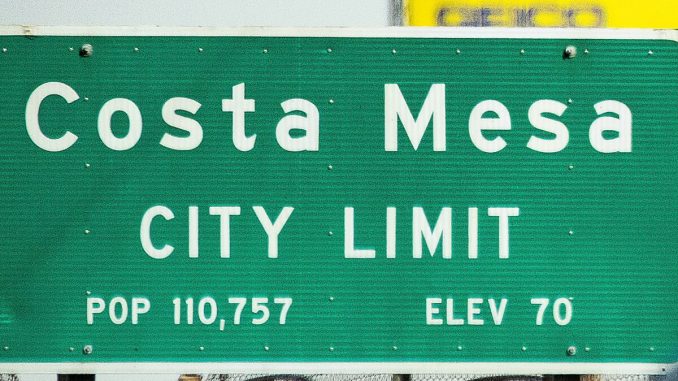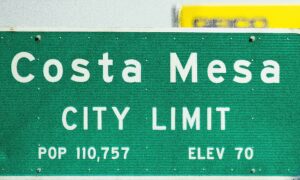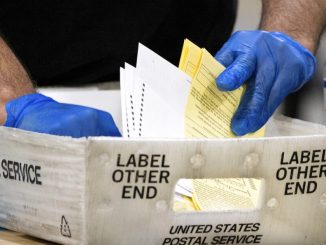

Costa Mesa is advancing the execution of a law allowing retail cannabis sales and delivery.
Council during its most recent meeting voted 5-2 to move forward with the implementation of its cannabis ordinance, Measure Q, by establishing minimum operating requirements and developing standards to tax and regulate cannabis dispensaries and deliveries.
“We can create something that the community is very proud of—high-end, well-capitalized businesses selling legal product in a safe manner in our community,” Mayor John Stephens said during the April 20 meeting.
Measure Q was passed by voters during the Nov. 3, 2020, general election. Costa Mesa is now working to implement the law.
The ordinance includes a seven percent tax on cannabis retail businesses. The city projects a minimum profit of $3.2 million annually in general fund revenue as a result.
Costa Mesa is facing a $29.8 million revenue loss amid the CCP (Chinese Communist Party) virus pandemic, according to its website.
“A higher tax rate allows the city to achieve its revenue goals and reinvest those gains back into our core services to the community and residents, sooner rather than later,” the report said.
Illegal cannabis dispensaries operating within the city must cease operations for one year prior to being eligible for a legal cannabis business permit.
Dispensaries must be located at least 1,000 feet from schools, playgrounds, child daycares, and homeless shelters; 600 feet from youth centers; and 500 feet from another licensed dispensary.
Cannabis delivery services must obtain a business license, and cannot operate within the city later than 10 p.m.
Of the collected tax revenue, six percent will go to the city’s general fund, while one percent will go toward the implementation of a culture and arts master plan, and a first-time homebuyer program for Costa Mesa residents and students.
Councilmember Manuel Chavez, in support of passing the ordinance, said: “As the country moves forward and cannabis becomes more and more normalized … are we going to be the forefront of something, [or are we] going to be behind it?”
Chavez said the city’s retail cannabis law “enables people to visit our city” and bring revenue into it, with visitors spending money at other businesses.
“Ultimately, it gives us more revenue to spend on services for Costa Mesa residents,” he said.
Councilmember Don Harper, one of the dissenting voters, opposed the ordinance on grounds that the 500-foot barrier between dispensaries limited free-market competition.
He said the buffer gives dispensaries that find a location first a competitive advantage and prevents businesses from being rewarded based on merit.
“I always prefer to let competition settle out,” he said, adding that the “arbitrary” barrier restricts such competition.
Harper also took issue with the ordinance’s rule of being 30 feet from a playground, rather than 30 feet from the park itself.
Councilmember Arlis Reynolds, concerned with the city’s lack of outreach prior to establishing the ordinance, wanted to “take a little bit more time and do more substantial outreach to match the level of what we did to try to get measure Q to pass.”
“We’ve fallen short on outreach to the public,” Reynolds said. “I think we don’t fully understand potential impacts on other businesses. And I don’t think that we were protecting against overconcentration in a way that could be detrimental to some areas and unfair to some areas.”
A Costa Mesa resident and business owner spoke during the meeting to share concerns about a lack of public outreach.
“I find it shameful that your cannabis ad hoc committee reached out to the cannabis business industry and over 50 industry representatives, and yet the public was not invited to voice any of their suggestions or concerns,” she said.
She said she was also concerned about the storefronts having to wait a period of 180 days before being allowed to open at the location of an illegally operating dispensary. (Council decided to amend it to 365 days during the April 20 meeting).
“Your recommendation for a listed dispensary is to vacate for only 180 days. It’s absolutely nothing,” she said. “It is far from the deterrent, and frankly a joke of a consequence.”
Other public commenters said the seven percent tax rate on retail cannabis sales was too high, and would be passed on to the consumer, or deter shoppers from purchasing cannabis in Costa Mesa.





Be the first to comment